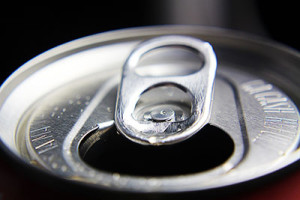 Caffeine
Caffeine
There’s no better way to start the morning than with a cup of freshly brewed coffee. The pleasing aroma, delectable flavor, and kick of caffeine will instantly wake you up. If this is part of your normal morning routine, however, you should limit yourself to just 1-2 cups of coffee, as too much caffeine can lead to higher levels of stress. Caffeine is a powerful stimulant that speeds up the heart and elevates the blood pressure, both of which can lead to stress.
Other foods and beverages that contain caffeine include sodas, chocolate, tea, energy drinks, and even chewing gum.
Milk
You might be surprised to learn that milk can also cause elevated stress levels. Granted, milk is an excellent source of protein and calcium, but it often contains antibiotics, hormones, pesticides, and other chemicals that can irritate the body’s neurological system. If you’re going to drink milk, it’s recommended that you choose a “certified organic” variety, as this indicates a lower concentration of coliform than factory-farmed dairy.
Refined Sugars
Foods containing large amounts of refined sugar should be avoided, especially if you’re trying to lower your stress levels. Refined sugars promote inflammation within the body, and it’s no secret that inflammation is an underlying stressor that can manifest both physical and psychological symptoms.
How is something so sweet and tasty able to increase our stress levels? It all goes back to the way in which our body reacts to sugar. When you consume something sweet, the sugars cause the pancreas to create more insulin, which is subsequently followed by a sudden drop in blood pressure. This leads to sudden mood changes, emotional instability, and stress.
Alcohol
An occasional glass of wine isn’t going to turn you into a stress-induced maniac, but studies have shown that excessive consumption of alcohol can increase a person’s stress levels. Alcohol causes the body to produce more stress hormones. And according to researchers at the University of Chicago, these stress hormones essentially feed on each other, creating a runaway snowball effect that compounds the individual’s stress levels.
Sodium-Rich Foods
Last on our list of stress-producing foods is anything containing large amounts of sodium. Don’t get me wrong, sodium is a key nutrient that’s required for proper bodily function. However, too much can force the body to retain fluids, which then increases blood pressure, causes bloating, and a world of other problems. The Centers For Disease Control and Prevention recommends adults consume 1,500 mg of sodium per day.
